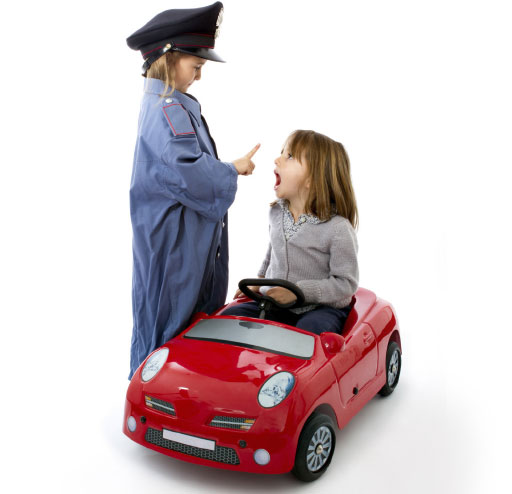Download a printable copy of this article (PDF 651KB)

- Every behaviour is impacted by context.
- Antecedents are the conditions for behaviour choice.
- You can’t change, but you can control antecedent impact.
- Triggers are events that ignite behavioural choice.
- Choose to remove negative triggers to improve success probability.
From around the age of three, young children are almost fully able to adapt their behaviour to their surroundings. It’s the very reason that they cling to a parent’s or carer’s leg when a stranger enters the room or why they save their best behaviour for their grandparents.
This pattern of adjusting behaviours according to the environment or stimuli around us is something that continues well into adulthood. Have you noticed that you and your closest friends have a unique way of speaking to each other that occasionally verges on a whole new language? Have you noticed how people tend to swear more in places where swearing is acceptable, rather than a church or a courtroom?!
“Passion is the trigger of success.”
– Anonymous
The events and conditions around us heavily impact our behavioural and language choices every second of every day. Students behave in certain ways, both positively and negatively in response to the conditions in the classroom. But they are also incredibly impacted by the things that happened in their lives long before getting anywhere near your classroom door.
Sometimes we think behavioural change or improvement is all about strategy. But the truth is that it’s the current and previous contexts that largely determine the success range of any strategy.
Consider for a moment the possibility of two key factors at play in your classroom – antecedents and triggers.
Antecedents are the conditions in which certain behaviours are more likely to happen. In the case of a repeated negative behaviour, ask yourself if it’s more likely to happen in the morning or the afternoon, more likely on a Monday than a Friday or more likely when a particular academic subject is broached. Other well-known antecedents for educators include students spending a weekend with the non-custodial parents or carers, having eaten an inappropriate breakfast, or no breakfast at all, or having had a disturbed sleep.
It’s very true that the antecedents at play with our students are often beyond our sphere of influence. But that needn’t mean that we can’t minimise the impact of these on the ability to engage. Check-in circles, run regularly and sharply, are a powerful mechanism for finding out what’s happening with the individuals in your class. If you detect that there’s something amiss, you are likely to be only one supportive chat away from assisting that student from moving out of distress and closer to learning capability.
Further, you’re also in a strong position to plan and advocate for better antecedents in a student’s life. Having a chat about getting to bed earlier, about how to approach healthy eating or about how to use self—talk positively when there’s an argument in the home are strong practical examples of just how we can be more proactive in the quest for a better balance of positive versus negative antecedents in our students’ lives.
Triggers are specific events that seem to ignite a certain behavioural choice. In many aggressive or violent students, these triggers can seem to us to be quite irrational and trivial – but not to them. A common trigger for aggression is “somebody touching my stuff”. It’s the invasion or threat to a belonging that seems to set off a strong chain of negative events.
Other triggers can be as simple as having to sit next to a particular student. This is where you need to ask smarter questions. After all, shouldn’t they be able to sit next to any other classmate without this becoming a major bunfight? Perhaps they should, but at the moment that isn’t the case. It would be preferable for he student to practise positive interactions in the learning environment to a point close to mastery first. When they experience some success you can re-introduce previously problematic classmates because the likelihood for further improvement is higher.
It’s all about taking the time and care to scaffold a positive success trajectory. We have no problem doing this academically, but may find the challenge of accepting this behaviourally more challenging. It comes down to a willingness to give even the most challenging students what they need above what they deserve.
Are you ready to remove negative triggers in your classes?







